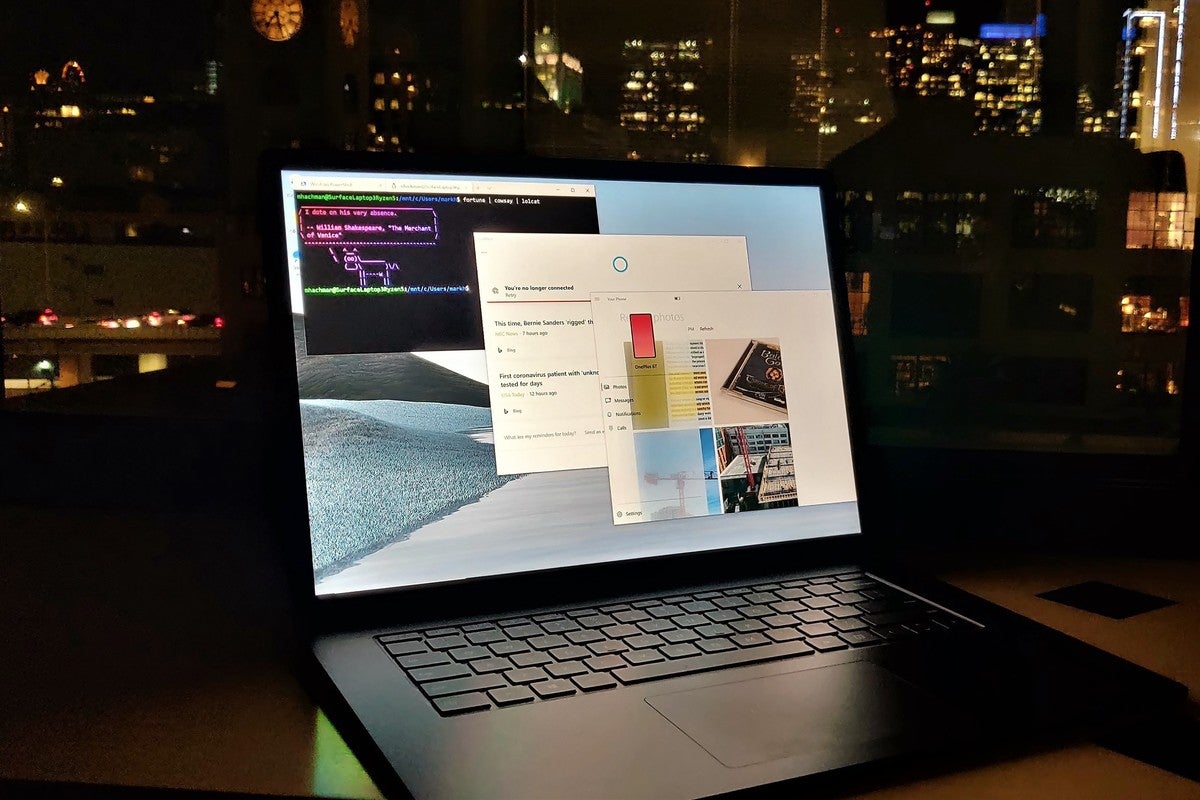Microsoft on Thursday gave the newest Windows 10 upgrade a name, calling it the “May 2020 Update,” signaling that it will launch the refresh next month.
Computerworld had argued that Microsoft would be better served, and better serve customers, if it pushed back the release of Windows 10 2004, the four-digit label it had assigned earlier, by several months. The COVID-19 pandemic and its effect on businesses, notably a massive shift to working at home, the argument went, had so stretched IT resources that adding a Windows upgrade risked breakdowns or even catastrophic failure of core business tools.
If Microsoft ever entertained a delay, it clearly rejected the idea.
“We are now getting the Windows 10 May 2020 Update (20H1) ready for release,” wrote Brandon LeBlanc, a senior program manager on the Windows Insider team, in an April 16 post to a company blog. “We believe that Build 19041.207 is the final build and we will continue to improve the overall experience of the May 2020 Update on customers’ PCs as part of our normal servicing cadence.”
Microsoft began delivering build 19041.207 to a subset of Windows Insider’s Release Preview ring, the channel that provides testers the most stable code. More Insider participants will receive 19041.207 as time goes by. Insiders can also manually trigger an upgrade to this build.
LeBlanc did not hint at a specific availability date for Windows 10 May 2020 Update’s final, polished code. One obvious date would be May 12, that month’s Patch Tuesday. Of the last three Windows 10 feature upgrades, two started shipping on the month’s Patch Tuesday.
Code name, short name, long name
Like all Windows 10 feature upgrades, this one goes by any of three names that Microsoft had assigned. Some were less accurate than others.
The 20H1 identifier used by LeBlanc was Microsoft’s code-named label for the year’s (2020) first-half (H1) feature upgrade, presumably one of two assuming the company follows its 2019 cadence.
Its newest name, Windows 10 May 2020 Update, is in the form Microsoft’s used since 2018, when it began applying month and year, spelled out, rather than coming up with monikers like 2017’s Fall Creators Update or 2016’s Anniversary Update. Because Microsoft has tended to wait until later in the development process to assign such names, they’ve been the most accurate of the bunch.
Finally, Microsoft had earlier tagged this as 2004, the four-digit number in its yymm format. The company had altered it from the usual yy03 for 2020’s spring feature upgrade because the resulting 2003 because it was afraid it might be confused with the long-obsolete Windows Server 2003.
Free support to business customers
Perhaps in an attempt to coax more commercial customers into participating in Windows Insider — specifically the Windows Insider for Business spin-off — Microsoft also said that it would provide support to those running the Release Preview ring or the Slow ring builds. (The Slow ring is more polished code issued about once a month to Insiders.)
The support is free of charge and limited to “business use cases” for customers running Windows 10 Pro or Windows 10 Enterprise. They can file a support request by completing this form. (LeBlanc’s post included instructions on filling out and submitting the form.)
“If you run into a severe issue that prevents you or other users in your organization from using a device or compromises security or personal data, you can use our online form to request assistance directly from Microsoft Support,” LeBlanc said.
Copyright © 2020 IDG Communications, Inc.

